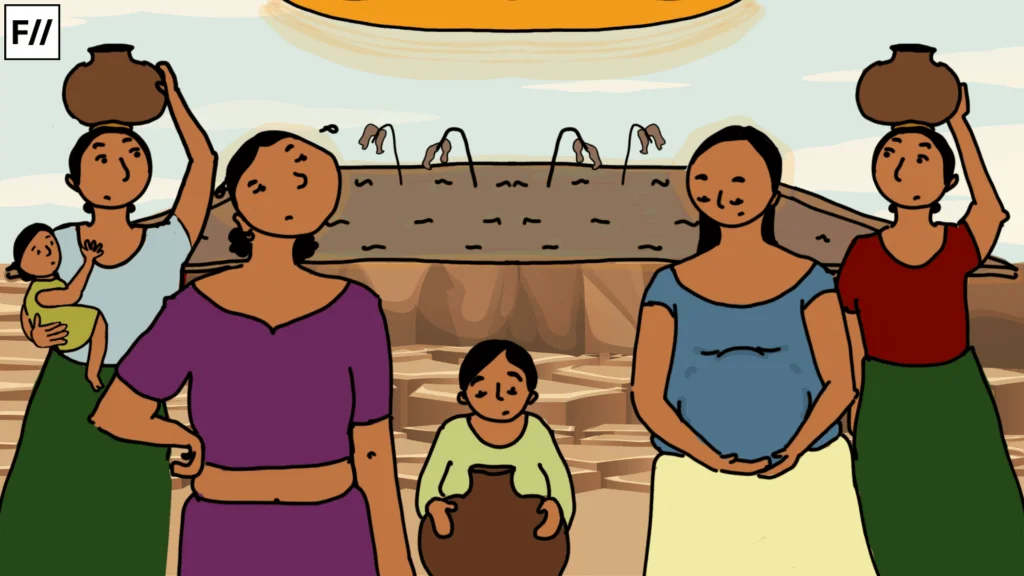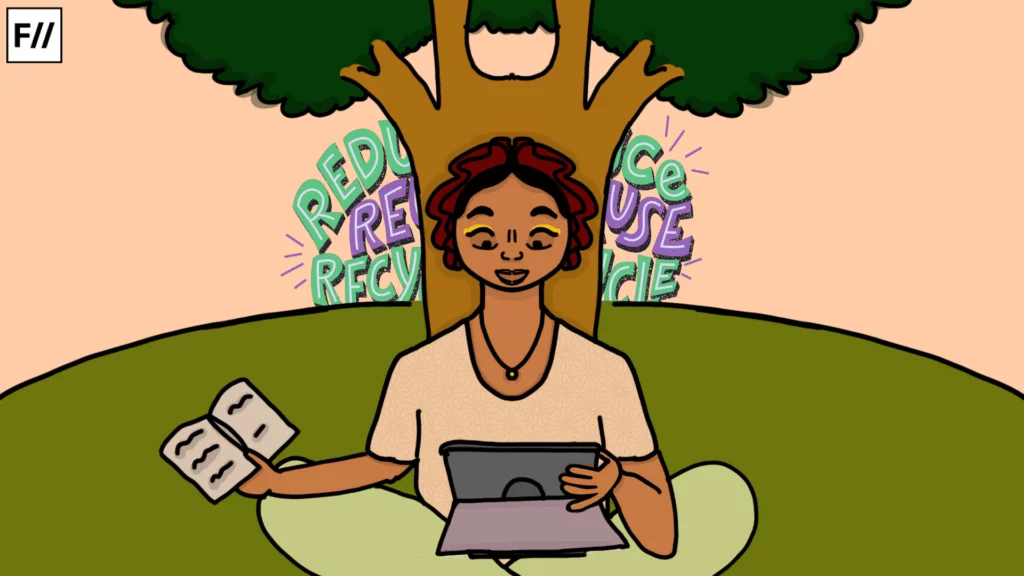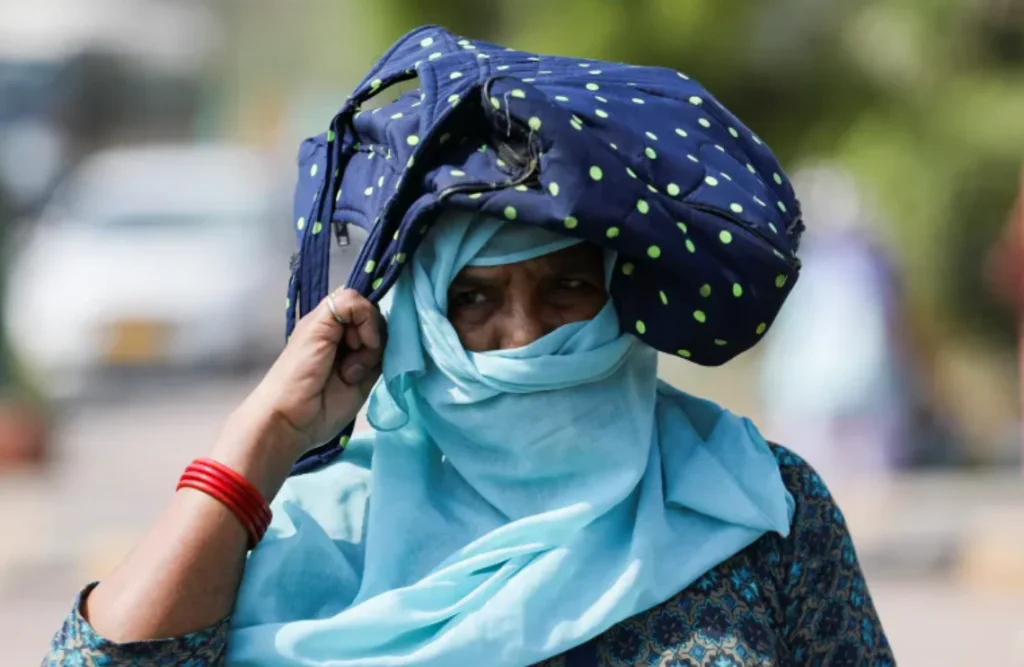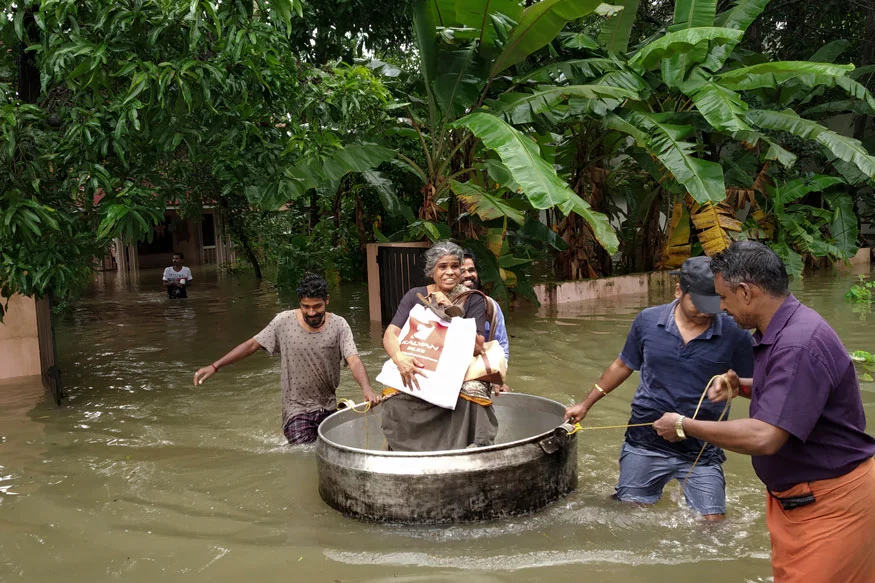The University of Bath recently published the results of its 2023 Climate Action Survey, which revealed a significant increase in concern about climate change among both students and staff as compared to the previous year. The survey found that 19% of students and 25% of staff were extremely worried, while 36% and 33% were very worried. These findings align with a global survey conducted in 2021, which showed that a majority of children and teenagers are experiencing strong negative emotions related to climate change, such as grief, worry, anger, despair, and remorse.
This growing phenomenon, known as eco-anxiety, is being fueled by the escalating climate crisis, which is manifesting in various forms such as droughts, food shortages, and extreme weather events.
This growing phenomenon, known as eco-anxiety, is being fueled by the escalating climate crisis, which is manifesting in various forms such as droughts, food shortages, and extreme weather events. The issue of climate change is increasingly being acknowledged as a crisis and is receiving more attention in mainstream media and culture. In India, the impact of eco-anxiety is particularly significant and warrants further exploration.
The implications of eco-anxiety in India
After the Kerala floods survey, Maneeja Murali came across a teenage flood survivor with autism who was still haunted by the trauma of the disaster. The girl’s mother shared that she was terrified of rain and refused to leave the house when it rained. Maya Gurung, a politician in Nepal’s Sindhupalchowk district and a former Everest climber, visited shelters after the 2021 Melamchi flood disaster and spoke to women who expressed their fear of losing their children in another flood while they slept.
These narratives from survivors of climate disasters shed light on the increasing awareness of the psychological impact of extreme weather events. The American Psychiatric Association recognises climate change as a major concern for global health in the modern era, as people around the world grapple with the need to adjust to its impact in different parts of the globe. With temperatures on the rise and more frequent extreme weather occurrences, individuals may experience both physical and psychological health challenges.
With temperatures on the rise and more frequent extreme weather occurrences, individuals may experience both physical and psychological health challenges.
The concept of climate anxiety has emerged as a way to describe the emotional toll of climate change, encompassing everything from mental health issues to a sense of loss and a desire for a healthier planet.
Women and climate: A mirror of decline and inequality
Changes in weather and seasons have been found to hurt individuals with mental health disorders, specifically those with bipolar disorder. Studies have shown a correlation between higher temperatures and an increase in manic episodes in individuals with bipolar disorder. Disrupted sleep patterns due to changes in circadian rhythms can further worsen symptoms. Furthermore, there is evidence to suggest that aggression and violence can rise with warmer temperatures. The depletion of natural resources and growing inequalities are contributing to violence in economies driven by growth.
Feminist perspectives highlight the link between intense capitalism and patriarchal societies, with women facing challenges such as limited rights to land ownership, education, employment, and experiencing domestic violence. The fight for women’s rights has been ongoing, with recent movements like youth-led climate activism shedding light on the intersection of women’s rights and environmental concerns.
Status of women in the context of urban-rural allocation
Climate anxiety is a recognised issue in both rural and urban areas, but in rural communities, it tends to be overshadowed by more immediate concerns such as economic hardships and social injustices. It is crucial to understand the unique challenges faced by urban and rural populations in India when it comes to mental health issues related to climate change. Urban areas in India are grappling with the impacts of rapid urbanisation and a growing population of migrant workers who are struggling to access basic needs like housing and resources.

The urban middle class, despite their outward appearance of comfort, is not shielded from the shallow trends of “greenwashing” and “pinkwashing” perpetuated by corporate social responsibility campaigns. Nonprofits and individuals dedicated to social causes are stepping up to address the gaps left by government initiatives, particularly in the realms of environmental preservation and women’s rights. In urban settings, individuals may experience distress as they yearn for a time when the environment was more pleasant and witness the noticeable effects of climate change in their daily routines.
In urban settings, individuals may experience distress as they yearn for a time when the environment was more pleasant and witness the noticeable effects of climate change in their daily routines.
This distress is often linked to inconveniences and higher expenses, rather than posing a direct threat to their safety or means of living, as seen in rural communities. In marginalised communities, disasters caused by climate change can result in displacement, food insecurity, unemployment, and a lack of social support, all of which can hurt mental well-being. In a study conducted in Chandrapur, a rural village near the Tadoba tiger reserve in Maharashtra, it was found that residents often experience emotional distress and unresolved grief due to the constant threats they face while performing everyday tasks, such as gathering firewood, which can sometimes lead to dangerous encounters with wildlife.
The loss of a loved one in such situations can trigger intense trauma and sorrow within the community. Similarly, agricultural communities also feel a sense of injustice from nature when they suffer from repeated crop failures and financial devastation as a result of extreme weather events. According to the 2011 census, most of the Indian population resides in rural regions and their main source of income is agriculture. Although a large number of women are actively involved in farming activities, they face obstacles in obtaining land ownership rights and formal acknowledgement. Nevertheless, a few female landowners have managed to revolutionise farming methods and establish collaborative business structures. Nonetheless, obtaining loans is a struggle for individuals without land ownership or proper documentation, particularly among indigenous groups.
Eco-anxiety due to climate change ripples through generation Z and marginalised populations
The destructive impacts of climate change are being experienced worldwide, affecting even countries that have had minimal contribution to its causes. Despite numerous warnings from experts and a lack of immediate action from global leaders, apprehensions about the survival of humanity on Earth are escalating. In recent times, the younger generation, particularly Gen Z, has become more conscious of the rapid environmental deterioration and its correlation with climate change. This heightened awareness has led to changes in people’s behaviour towards the environment but has also triggered feelings of overwhelm and dread about the future of the planet.

Many individuals feel powerless in the face of these challenges, resulting in increased levels of stress and anxiety, a phenomenon known as eco-anxiety as identified by the American Psychological Association in 2017, underscoring the concerns of Gen Z and the difficulties they face in dealing with eco-anxiety.
The study delves into the psychological well-being of individuals born between 1995 and 2010 about the stressors of climate change, indicating that this particular cohort is especially susceptible to the mental health impacts of the ongoing climate crisis. Known as “the climate generation”, Gen Z has come of age in a time defined by significant environmental challenges. A global survey found that the youth in India are among those most deeply affected emotionally by the consequences of climate change. In addition, marginalised communities such as transgender individuals and LGBTQ groups bear a disproportionate burden in the aftermath of extreme weather events.
Eco Anxiety can have immediate physical effects on individuals, such as coughing due to a dust storm, but the long-term mental impacts are often underestimated and can develop into chronic conditions. The individual may not even be aware of how pollution is affecting their mental well-being. It is crucial to acknowledge that a variety of environmental factors can contribute to the onset of illnesses in individuals.
The interaction of various host and environmental factors can lead to the development of diseases, with the mental effects often being disregarded. Research on the psychological repercussions of environmental degradation and climate change in India is imperative and merits more attention from academics and environmental psychologists.






